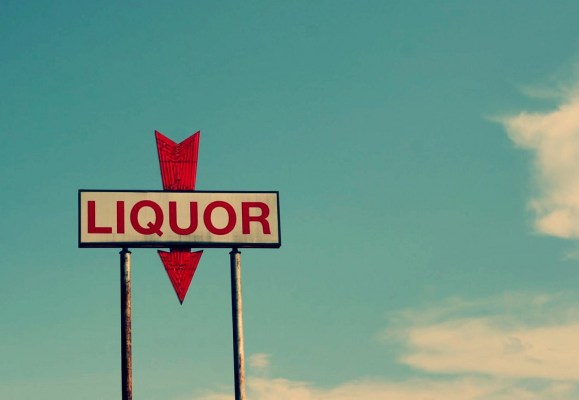Editor’s Note: Christine Magee is an editor for CrunchBase.
A new startup movement brewing in the booze biz has VCs backing liquor delivery services, robotic bartenders, and smartphone breathalyzers — and they’re showing no sign of turning off the tap.
Last year, startups in the alcohol industry raised $100 million in funding across 43 venture rounds. This is petty cash compared to the $800 million raised by food startups in 2015 (Delivery Hero’s $586 million round alone far exceeds the total venture money invested in alcohol startups), but a handful of investors are convinced that the alcohol industry warrants its own tech brands. And they’re testing the waters with some early stage capital.
“Wine in the U.S. alone is $35 billion annually, liquor is something like $46 billion annually, and the higher margins on alcohol make this a compelling market,” says Henry McNamara of Great Oaks Venture Capital.
In the past year, Great Oaks has backed alcohol delivery startup Minibar and wine discovery app Drync. McNamara says the light tech layer that both are building requires very little capital but has a huge potential to transform consumer behavior.
“There’s a huge opportunity with on-demand in this industry because the large majority of alcohol is consumed within 24 hours of purchase — but right now, less than 2 percent of sales is being done online,” says Lara Crystal, co-founder of Minibar.
Consumers are increasingly expectant of on-demand service, whether for food, laundry, or ride hailing — so it’s logical that buying booze should follow suit. The legal restrictions around alcohol could explain why we don’t already have a Seamless equivalent for liquor delivery, but startups are finding ways to circumvent the red tape.
Crystal’s Minibar, for instance, the New York-based startup that acquired competitor Booze Carriage last week, powers product search, delivery, and customer service for its users — but since Minibar is not the merchant on record, they’re able to avoid the liability that comes with selling liquor.
It’s obvious how the customer benefits in this equation — who wants to run to the liquor store when an app can tell you exactly what they have in stock and bring it to your doorstep? — but local vendors and large brands stand to benefit on a wider scale.
“Americans spend over $104 billion annually on home consumption of alcohol, but less than 10% of alcohol retailers are online,” says Anu Duggal, founder of Female Founders Fund and Minibar investor.
The small proportion of local vendors that have moved online are reporting encouraging results. Duggal says that alcohol stores working with on-demand services have seen a significant uptick in sales — up to 50% for some.
“The real power of these platforms is the data analytics and marketing side — that has huge value for liquor or wine companies that are looking for new ways to attract new customers,” says McNamara.
Since launching in New York February of last year, Minibar has expanded to 7 major metro areas in the U.S., including San Francisco and Miami. And they’re not alone — Boston-based Drizly has racked up nearly $5 million in VC funding in the past two years, and Thirstie, another NYC-based delivery startup, picked up $1.1 million in new funding last week.
It’s always encouraging when you see a market being built and validated by other VCs,” says McNamara. “It’s still early days — I think we’ll see lot of consolidation in the space and it’ll be interesting to see how it plays out.”
